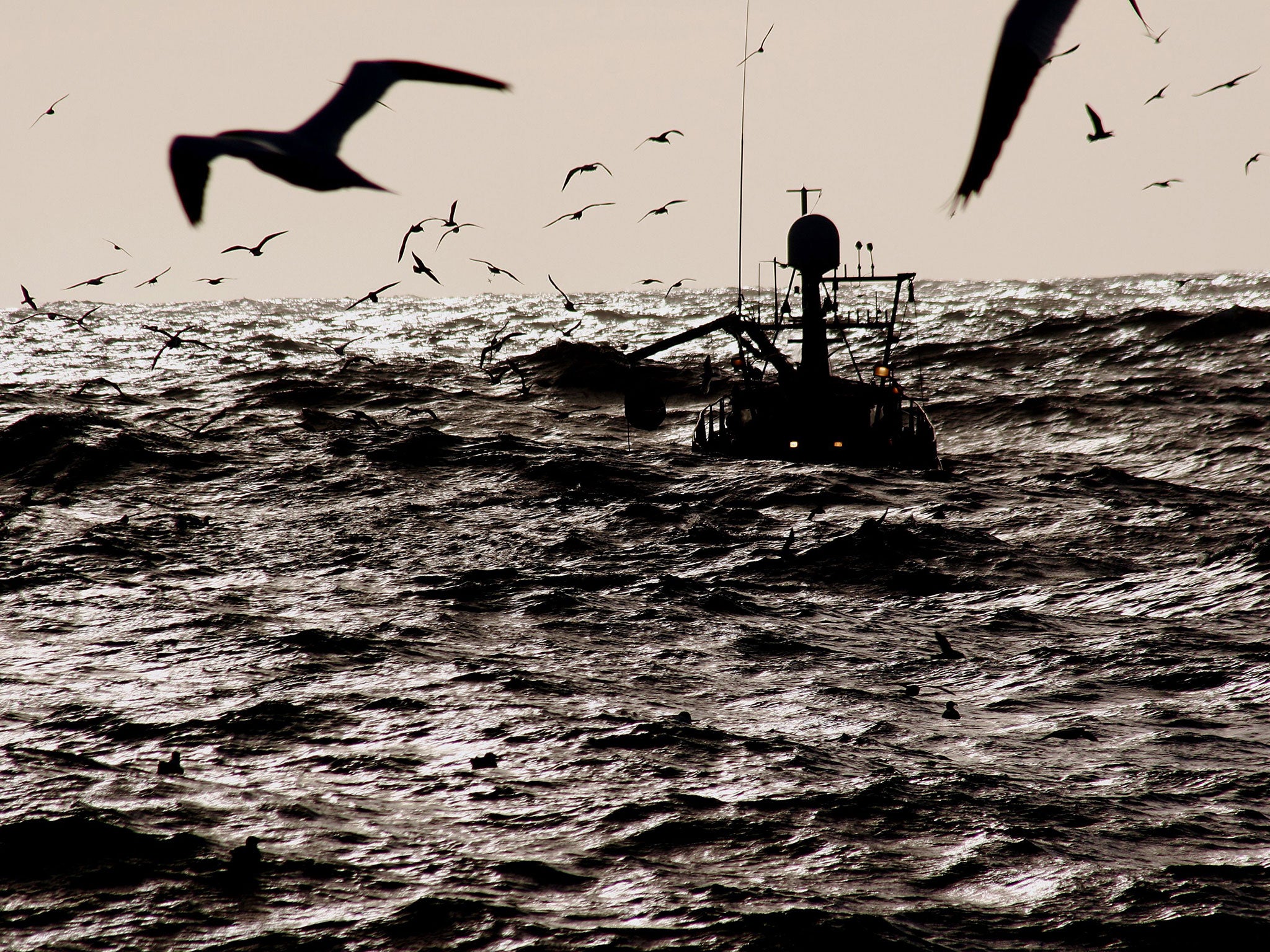Police investigate claims of slavery in UK fishing fleet
Exclusive: Foreign workers are vulnerable to exploitation in a business out of reach of any inspection regime

Police are investigating allegations of human trafficking and slavery in parts of Britain's fishing fleet. It is understood that among the claims are allegations that foreign fishermen suffering from exhaustion and malnutrition on UK-owned boats have leapt into the sea off the coast of Britain to escape abusive treatment on board.
Details of the inquiry emerged after a man alleged that he was forced to continue working on a British prawn trawler despite having part of his finger ripped off in an accident.
Henry Mahinay, 56, said that he kept working without painkillers and only rudimentary medical treatment as blood streamed down his arm before he was abandoned on the quayside of a Scottish port more than five hours later.
"I took off my glove and showed the captain, as it was bleeding and I was in terrible pain," said the father of five. "But he told me: 'It's not my responsibility to take you to hospital. It's only a small cut – now get back to work'."
Mr Mahinay's account has revealed a horrifying trade in vulnerable individuals who often have to work in horrendous conditions at sea, beyond the reach of police and regulators.
After his ordeal, he was interviewed by detectives in Scotland working on allegations of maritime slavery. The Filipino taxi driver – whose finger was later partially amputated – detailed his ordeal in a 13-page statement that also forms part of a claim for unpaid wages. He says he has received less than £100 over two and a half months.
Agencies working with abused seamen said Mr Mahinay's story of being fleeced by agents in his home country, shifted between boats, and going without pay is a common story within the £770m industry that increasingly relies on foreign labour. Dwindling catches and profits have resulted in a shortage of indigenous fishermen willing to take on the dangerous work. Foreign worker are vulnerable to exploitation because visa rules mean they are usually forced to live on the boats where they work, and are out of reach of any inspection regime or welfare checks.
As they do not come ashore they are also not subject to minimum wage protection, with contracts indicating that some foreign crewmen from West Africa and Asia are being legally paid as little as £600 a month.
The Home Office said that 24 maritime workers were identified as potential victims of trafficking last year but said that the actual numbers are likely to be much higher. The National Crime Agency (NCA) said there had been a sharp increase in exploited Ghanaian sailors from two to 14 in 2013 amid reports that captains have palmed off foreign fishermen on to seamen's unions to get them repatriated without having to spend any money themselves. However since a police operation in 2012 the numbers of workers from the Philippines abused by ship owners has fallen.

"This is a globally unreported problem," said David Hammond, barrister and founder of Human Rights at Sea. "Slavery and trafficking has been going on since piracy but there is only just becoming interest in it."
Nobody has so far been prosecuted, and the police inquiry into alleged trafficking and slavery is continuing. A Police Scotland spokesperson said: "This is a live investigation. We will not comment further."
"If the industry needs to survive on slavery, then the industry needs to go," said Ken Fleming, of the International Transport Workers' Federation (ITF), who has been involved in the repatriation of dozens of foreign fishermen.
A dossier compiled by the ITF has detailed a series of cases in which foreign fishermen had wages unpaid and their passports kept by employers. In one case, a crew member was dumped at Newcastle Airport with no money after a month of work.
In his statement, Mr Mahinay detailed how he was fleeced by a Manila-based agent who took more than £2,000 from him. The agent insisted Mr Mahinay found him housemaids and acted as his driver before he secured his visa and placement in Britain to work on a fishing boat off Penzance, Cornwall.
Mr Mahinay said he and a colleague were flown to Belfast and set to work on a ship in Northern Ireland – while being assured they were in England. During his employment, he said, he was screamed at by the captain, worked until late in the evening and was provided with very little food.
"We were never given any time off to rest, never given any days off at all," he said. "At night we slept on the boat and many nights there was no electricity. If it was raining I would get wet because the ceiling would leak on to my bed."
Although Mr Mahinay said he was due to be paid the equivalent of £700 a month he never received any money, most of which was due to be paid through his Philippine agent. He said his employer showed him evidence the agent was sent payments of nearly £3,000, but claimed his partner and five children in the Philippines did not receive any money. He has now been given a year's leave to remain in Britain.
The fishing industry says only a tiny number of its 12,000 employees are exploited, but the Government has announced plans in the Modern Slavery Bill to allow checks on vessels at sea.
Minister for Modern Slavery and Organised Crime, Karen Bradley, said: "At the moment a loophole in the law means that law enforcement officers can't always act to prevent modern slavery offences taking place at sea. This is unacceptable and I am determined to put it right."